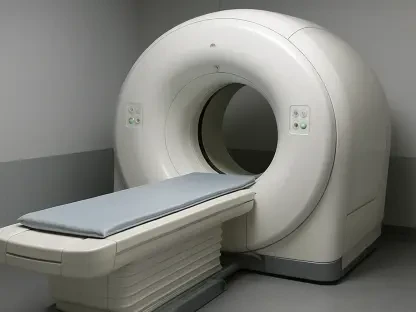Brattleboro Memorial Hospital (BMH) in Vermont stands at a critical juncture, facing a daunting $4 million budget shortfall that threatens its ability to serve an aging community reliant on accessible healthcare. This small but vital institution, nestled in a rural region, has become a focal point of concern as financial pressures mount, forcing tough decisions about staffing and services. The hospital’s plight mirrors a broader crisis affecting rural healthcare facilities across the nation, where systemic challenges and policy shifts exacerbate local struggles. Community members, activists, and administrators alike are grappling with the question of how to balance high-quality patient care with fiscal sustainability. As demonstrations unfold and voices rise in support of staff retention, the situation at BMH highlights not only a local battle for survival but also a national conversation about the future of healthcare in underserved areas. This unfolding story demands attention, as the outcome could set a precedent for similar institutions facing parallel dilemmas.
Community Voices Rise in Support
The community surrounding Brattleboro Memorial Hospital has rallied with remarkable passion, demonstrating a deep-rooted commitment to preserving the institution as a local lifeline. On a recent Friday, a peaceful gathering of residents and activists underscored the fear of potential outsourcing and staff reductions that could erode direct patient care. Individuals like Christine Scypinski, a concerned local, have voiced the urgent need for alternative strategies to safeguard jobs and maintain the hospital’s role as a cornerstone of the region. This collective outcry reflects a broader sentiment that BMH is more than just a medical facility; it is a symbol of community resilience and care, especially for an aging population with limited access to other options. The emotional weight of possibly losing such a vital resource has galvanized residents to push for solutions that prioritize employee retention over cost-cutting measures that might compromise service quality.
Beyond the emotional response, the community’s stance is grounded in a practical understanding of the hospital’s importance to daily life in a rural setting. Many residents depend on BMH for everything from emergency services to routine care, and the prospect of reduced operations sends ripples of anxiety through the area. Activists argue that the hospital must remain a place where patients receive personalized attention from familiar faces, not a streamlined operation driven by external contractors. This perspective clashes with the harsh financial realities, yet it fuels a determination to find innovative ways to support the hospital without sacrificing its core mission. The demonstration serves as a powerful reminder that healthcare in rural America is not just a business but a deeply personal matter, intertwined with the fabric of community identity and well-being.
Administrative Challenges and Responses
Hospital leadership, under the guidance of CEO Chris Dougherty, faces an unenviable task of navigating BMH through turbulent financial waters while striving to maintain its independence as a community-focused institution. Recent cuts, including the elimination of six administrative positions, have already caused significant distress among staff and stakeholders. Dougherty has publicly acknowledged the pain these decisions inflict, emphasizing a commitment to avoiding further layoffs or service reductions wherever possible. The administration’s approach centers on participating in programs designed to bolster financial stability, while reassuring the public that closure is not on the table. This delicate balancing act reflects a broader struggle to align the hospital’s mission of compassionate care with the stark necessity of fiscal responsibility in an increasingly challenging economic landscape.
At the same time, the administration must contend with external pressures that compound the internal budget shortfall, making long-term planning even more complex. National policy shifts, such as reforms to Medicaid and Medicare under recent legislation, alongside rising tariffs and pharmaceutical costs, have tightened the financial noose around rural hospitals like BMH. These factors are beyond local control, yet they directly impact the hospital’s ability to fund operations and retain staff. Dougherty’s statements suggest a proactive stance, with contingency plans and expense reduction efforts underway, though specifics remain scarce. The leadership’s transparency about these struggles aims to maintain trust with the community, even as it grapples with decisions that may not please everyone. This administrative perspective highlights the intricate dance between immediate survival and the aspiration to preserve BMH as a responsive, independent entity.
Systemic Issues in Rural Healthcare
The financial woes of Brattleboro Memorial Hospital are not an isolated phenomenon but rather a symptom of deeper systemic failures within the American healthcare system, particularly in rural areas. Experts and former professionals, such as Franz Reichsman, a past emergency room doctor and local Select Board member, point to a flawed payment structure that often prioritizes administrative overhead over direct patient care. This imbalance, worsened by federal budget decisions in recent times, leaves small hospitals struggling to cover basic costs while meeting the complex needs of their communities. Reichsman’s critique underscores a widespread belief that the challenges at BMH reflect a national crisis, where rural facilities bear the brunt of policies designed without their unique circumstances in mind, threatening their very existence.
Compounding this issue is the lack of tailored solutions for rural healthcare providers, who operate under constraints vastly different from their urban counterparts. The aging demographic in areas like Brattleboro places additional strain on hospitals already stretched thin, as the demand for specialized care grows without a corresponding increase in funding or resources. National trends, including the push for cost efficiency through outsourcing or consolidation, often fail to account for the personal touch that rural hospitals provide, a quality deemed irreplaceable by many locals. The call for a top-down review of hospital structures and finances, though not yet detailed, suggests a yearning for reform that could realign priorities toward patient outcomes rather than bureaucratic demands. This broader context frames BMH’s struggle as a microcosm of a failing system, where local innovation must somehow bridge the gap left by national shortcomings.
Path Forward for Sustainability
Reflecting on the journey of Brattleboro Memorial Hospital, it becomes evident that the community and administration have confronted a formidable array of challenges, from a significant budget deficit to the looming threat of service cuts. Their shared determination to protect a cherished institution stands out, as does the recognition that local efforts alone cannot fully address the systemic issues at play. Each stakeholder, from activists to hospital leaders, has contributed to a dialogue that seeks to preserve the essence of rural healthcare amid financial adversity. The cuts already implemented and the demonstrations held bear witness to a pivotal moment in the hospital’s history, one that tests its resilience against a backdrop of national policy constraints.
Looking ahead, the next steps for BMH must involve a blend of immediate action and long-term advocacy to secure its future. Engaging with state and federal policymakers to push for reforms that support rural hospitals could provide much-needed relief, while locally driven fundraising and partnerships might offer short-term stability. Exploring innovative models of care delivery, such as telehealth expansions or shared service agreements with nearby facilities, could also ease operational burdens without sacrificing quality. The community’s role remains crucial, as continued activism and support can amplify BMH’s voice in broader healthcare discussions. Ultimately, the path to sustainability demands collaboration across all levels, ensuring that this vital institution not only survives its past trials but thrives as a beacon of hope for generations to come.









